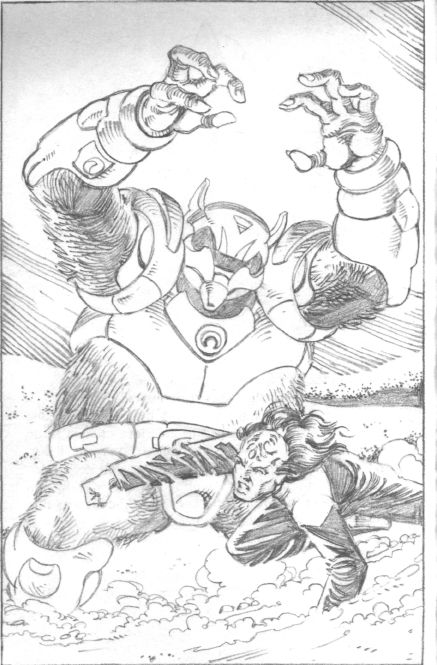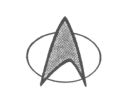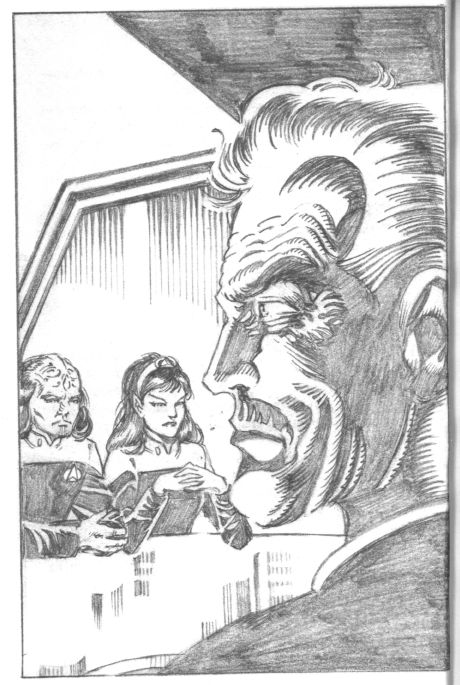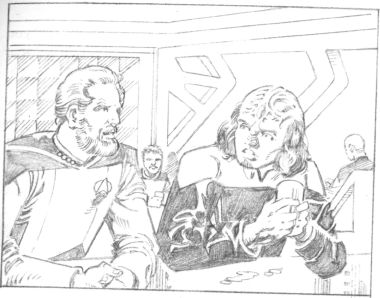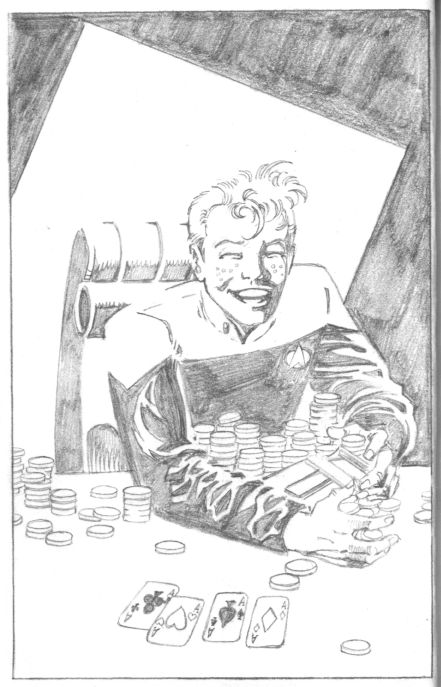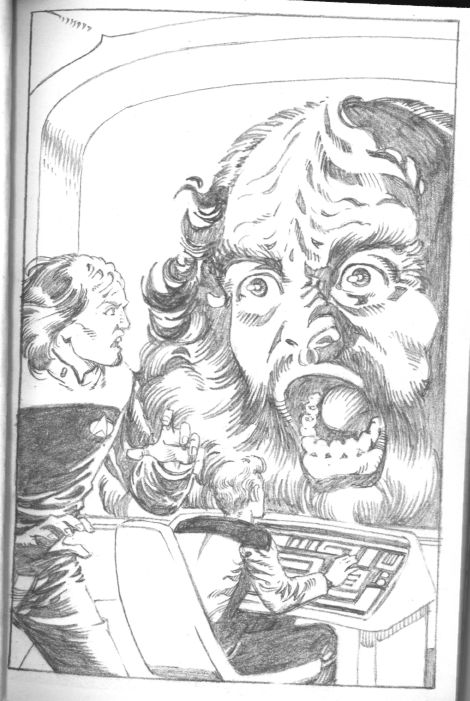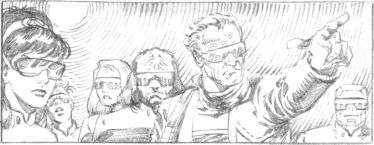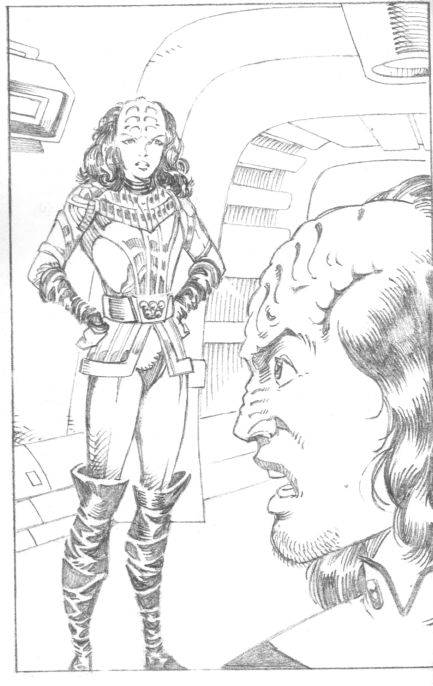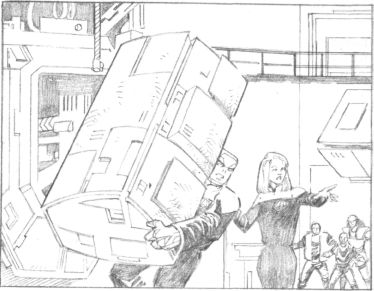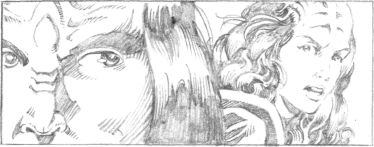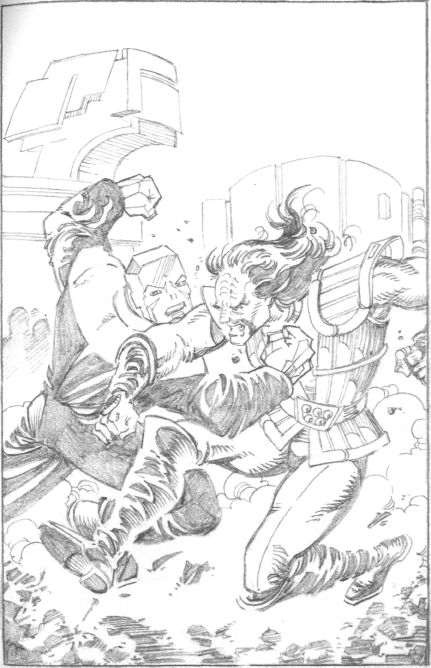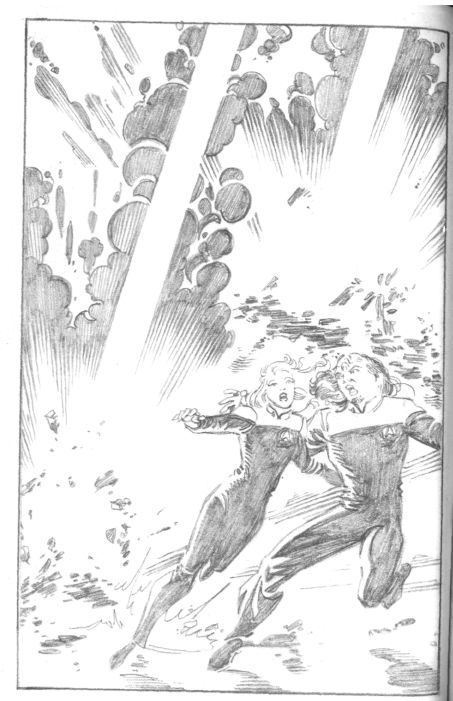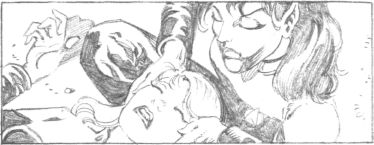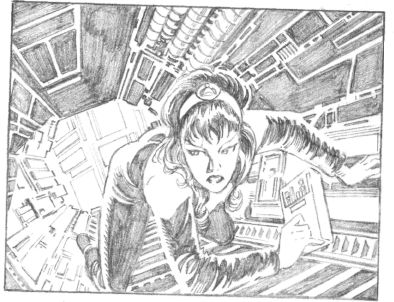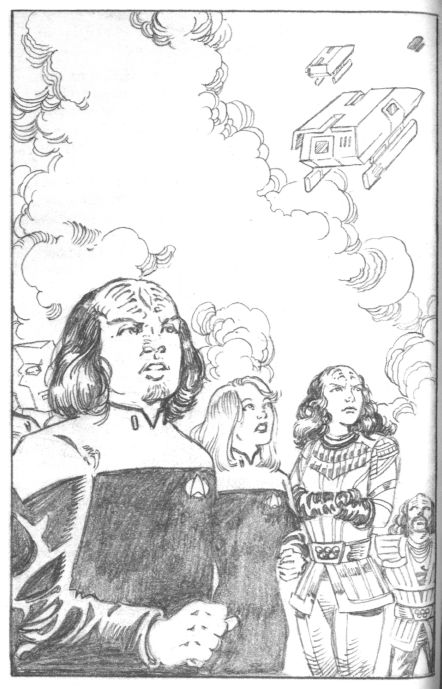r
BE THE FIRST ONE IN YOUR SECTOR TO OWN ONE!
The sound of a deafening crash echoed across the surface of Dantar IV. . . .
A raucous cheer went up from everyone in the cannon housing. But it was quickly stifled as they heard the sounds of sobbing and cries from the colonists outside, and the air filled with a thick cloud of black smoke.
"Worf!" called out K'Ehleyr. He went over and knelt down next to her. She was cradling the bleeding head of Professor Trump in her lap, and she looked up at Worf worriedly. "If he doesn't get medical attention immediately, I don't think he's going to make it."
"Medical attention is going to be a problem," said Dini, coming over. "The infirmary was one of the first things to be hit in the initial raid. I don't even want to think what's left of it by this point. Probably nothing."
Zak looked at Worf and said what they already knew: "We're not out of trouble yet, are we?"
Worf shook his head. "No. Not by a long shot."
STHRTREK
19 9 4 CALENDAR
STAR TREK
THE HEXTGEnEHSJian
19 9 4 CALENDAR
0~
I
□
Ln

ll
iTM
1994 CALENDAR
Available from Pocket Books



